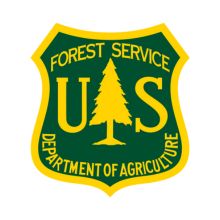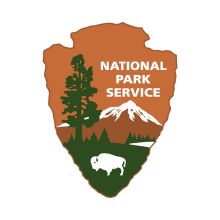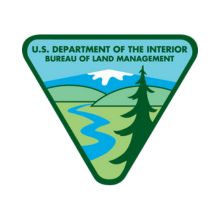River Studies & Leadership Certificate Institutions and Advisors
The River Studies and Leadership Certificate (RSLC) is designed to offer undergraduate and graduate students who have become inspired to join the next generation of river professionals a foundation of knowledge, skills and experience in river-based science, policy, conservation, education, and recreation.
The following universities and colleges offer courses that fulfill the certificate requirements. Faculty members from these institutions collaborate with students to design and complete a personalized academic program that empowers them to address the real-world challenges facing our nation’s rivers. Each student’s program is vetted by industry professionals, practitioners, and academics from RMS and the partner institutions.
Learn more about the RSLC and get involved by visiting our RSLC webpage.
|

Nicholas King is the Interim Coordinator of Outdoor Program at Colorado Mesa University.
|

Dr. Erin Dascher is an assistant professor of geography at Eastern Washington University. Their research focuses on human-nature interactions related to river connectivity and restoration, aquatic species distributions, and water sustainability. They use geospatial tools and large datasets to analyze the history and effects of anthropogenic changes to landscape resilience, watershed connectivity, and species distributions. Through their research they examine the unique patterns of fragmentation and river connectivity caused by instream barriers and the geography of anthropogenic changes to river environments. In past research, Erin created a decision support tool to assess the potential of dam removal as a conservation technique for freshwater mussels in two central Texas river basins, where multiple species of freshwater mussels, including endemic and threatened species, must compete with increasing human demand for access to limited water resources. Erin's current research interests include river connectivity, freshwater mussel conservation, and water resource management as well as broader human – environment interactions.
|
|
 Dr. Cynthia Dott is a Professor of Biology at Fort Lewis College. Dr. Cynthia Dott is a Professor of Biology at Fort Lewis College.
|
 Dr. Denielle Perry is Water Resource Geographer and Director of the Free-Flowing Rivers Lab in the School of Earth and Sustainability at Northern Arizona University. She has over 20 years experience working in river advocacy, research, and guiding. Her research investigates the socio-ecological dynamics of riverine ecosystem conservation, restoration, and development in the face of increasing human demands and climate change. She is Co-Chair of the international Durable River Protection Coalition, a leader in the Wild and Scenic Rivers Coalition, and Co-PI on the NSF-RCN-UBE - The River Field Studies Network: Connecting rivers, people, & science through immersive field-based education. Dr. Denielle Perry is Water Resource Geographer and Director of the Free-Flowing Rivers Lab in the School of Earth and Sustainability at Northern Arizona University. She has over 20 years experience working in river advocacy, research, and guiding. Her research investigates the socio-ecological dynamics of riverine ecosystem conservation, restoration, and development in the face of increasing human demands and climate change. She is Co-Chair of the international Durable River Protection Coalition, a leader in the Wild and Scenic Rivers Coalition, and Co-PI on the NSF-RCN-UBE - The River Field Studies Network: Connecting rivers, people, & science through immersive field-based education.
|
|

Dr. Lizz Waring is an assistant professor of Biology and Freshwater Sciences at Northeastern State University. Her research focuses on plants, macroinvertebrates, and nutrients.
|
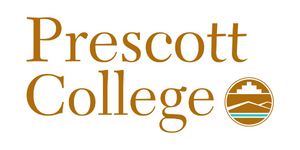
Mathieu Brown is faculty at Prescott College where he teaches adventure education and environmental studies. He teaches a number of cross-disciplinary classes such as Backcountry Skiing and Winter Ecology, and Environmental Perspectives and Whitewater Rafting. His specialty is interdisciplinary landscape-based education, and experiential field-based studies.
|
|
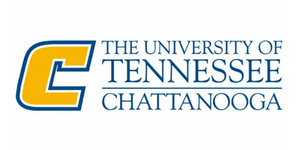
Elise Chapman
|
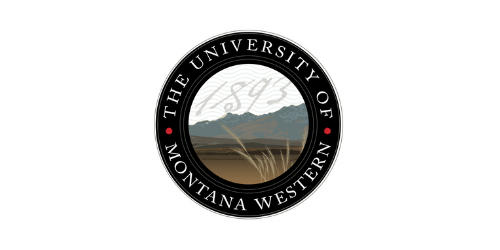
Dr. Arica Crootof is an Associate Professor of Environmental Sustainability at the University of Montana Western. Arica is drawn to the complex and compounding challenges associated with water resources and uses her interdisciplinary education – a M.S. in hydrology and a Ph.D. in geography – to study the human dimensions of water resources in mountain environments. In Arica’s courses, students explore how human activities interact with the natural world. Whether sampling an alpine lake, attending a local watershed meeting, conducting an interview, or writing a report, students are engaged in developing collaborative practices that protect and enhance local natural resources.
|
|

Sharon Bywater-Reyes
|

Dominique Shore currently serves as the Restoration Consortium Director for the Department of Watershed Sciences at Utah State University. She works to provide hands-on training in aquatic ecosystem restoration for USU-students and professionals and bridge the gap between applied-academic research and management decisions. Previously, she worked for a local conservation district in Southwest Montana implementing stream and landscape scale restoration and at the Idaho Department of Environmental quality working with nonpoint source pollution. She received a B.S. in Geology from Fort Lewis College and a M.S. in Geology from Utah State University. Outside of work, she can be found mountain biking, fly fishing, skiing, or being bossed around by her corgi-mix, Oscar.
|
 Dr. James Vonesh is a Professor of population and community ecology, conservation biology, and aquatic ecology at VCU. Dr. James Vonesh is a Professor of population and community ecology, conservation biology, and aquatic ecology at VCU.
|

Dr. Brian Byrd is a Professor in the Environmental Health Sciences program, Western Carolina University in Cullowhee, NC. His research focuses on native and invasive domestic mosquitoes and mosquito‐borne diseases, with a regional focus on La Crosse encephalitis. Recent studies have investigated the role of invasive mosquito species in riverine rock pool systems along the Chattooga and French Broad rivers. He holds a PhD and MSPH from Tulane University School of Public Health and Tropical Medicine.
|

Susan Washko
|

John McLaughlin
|
|




 Dr.
Dr. 










